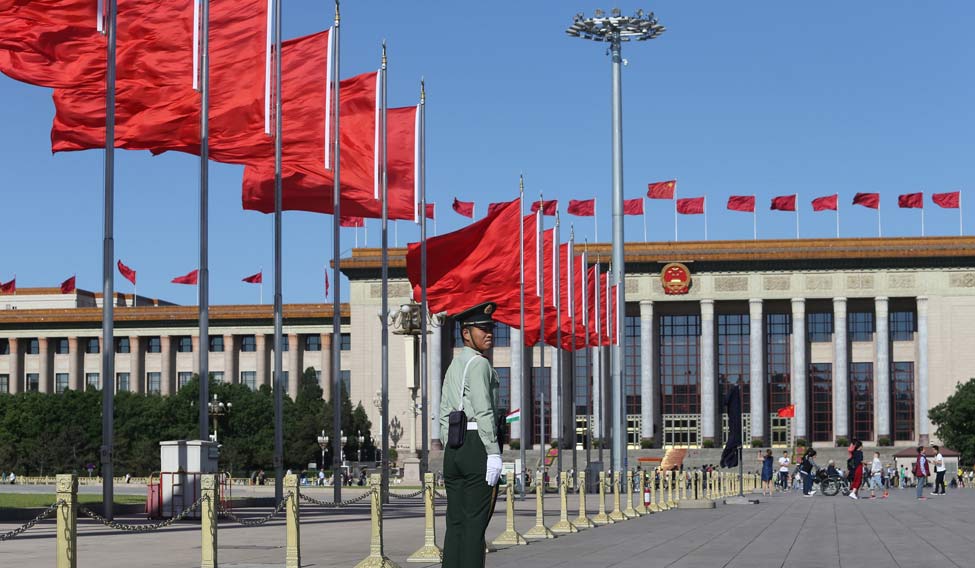China has released a draft intelligence law aimed at providing a legal foundation for its intelligence operations, the latest legislative effort by Beijing to fortify national security against perceived threats at home and abroad.
The draft law, published on the website of top legislature the National People's Congress on Tuesday to solicit public feedback, stipulates that China's public security, state security and military are in charge of the country's intelligence services.
The draft law also allows them to conduct intelligence activity "both within and outside national borders" and to investigate foreign and domestic individuals or institutions deemed harmful to national security.
The latest intelligence law is formulated to "strengthen and ensure state intelligence work and safeguard national security and interests," according to the draft on the NPC's website.
However, it did not specify what falls under the scope of "state intelligence work," but said it should provide intelligence support for protecting national security, and safeguard national interests like "state power, sovereignty, independence and territorial integrity, the well-being of the people and sustainable development of the economy and society."
The draft law also allows intelligence officials to adopt secret investigative measures such as wiretapping, electronic surveillance and clandestine filming. Intelligence officials can also enter "restricted access areas," skip customs and border inspections and seize vehicles owned by individuals or institutions.
Spy agencies could also establish "cooperative relationships" with the individuals and organisations, the draft law said.
Meanwhile, it also warned the intelligence officials against overstepping their authority, abusing their power or leaking the state or commercial secrets, saying that these infractions would be punished by the law.
Since President Xi Jinping came to power, a slew of new laws have been passed to deal with the security challenges, including a national security law, an anti-terrorism law in 2015 and a counter-espionage law in 2014.




